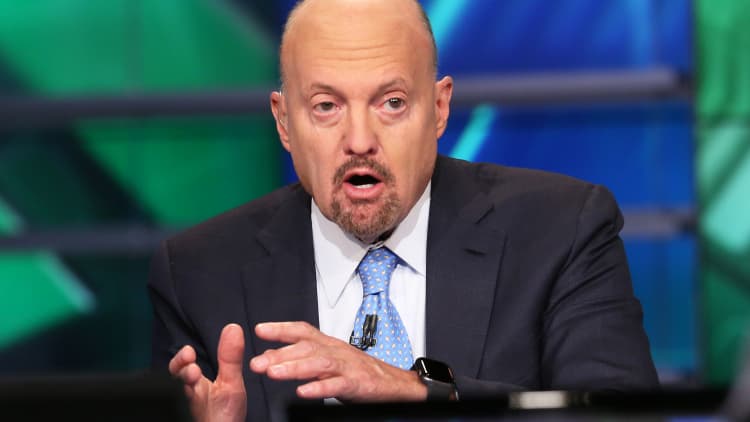Your paycheck could get bigger if the White House gets its way.
President Trump said this week that he won't sign the next coronavirus relief package into law if it doesn't include a payroll tax cut for workers, according to published reports. However, his past calls for going this route to help people during the continuing economic crisis have been met with opposition from both Republicans and Democrats.

"Both sides have said it's not well-targeted," said Garrett Watson, senior policy analyst at the Tax Foundation. "The benefits primarily would accrue to folks who already are working, and we currently have record unemployment."
As the U.S. economy continues to struggle amid the pandemic and new unemployment claims are still exceeding 1 million weekly, lawmakers in the Republican-dominated Senate are expected to unveil their version of a stimulus bill next week.
More from Personal Finance:
Small businesses rehire staff but cut pay and hours
Treasury canceling stimulus checks to dead recipients
Coronavirus unemployment claims are worst in history
Other strategies lawmakers are weighing to help Americans include extending extra unemployment benefits, which critics say could encourage people to stay home to avoid the pandemic, or back-to-work bonuses, which would reward them for resuming their jobs.
You and your employer split payroll taxes, which are used to fund government programs — largely Social Security and Medicare. Those taxes are on top of your federal and state income tax withholdings.
For Social Security, 6.2% of your wages — up to $137,700 for 2020 — are withheld from your paycheck and sent to the IRS, and your company also remits a matched amount. In other words, the IRS receives the equivalent of 12.4% of your wages to support Social Security.
For Medicare, you and your company each chip in 1.45%, with no cap on wages subject to that portion of payroll taxes. In fact, an extra 0.9% Medicare tax is withheld for incomes above $200,000.
Self-employed workers pay both the employer and employee share — but are generally able to deduct half of it on their tax return.
For illustration: If a worker paid no payroll taxes on $10,000, it would mean getting $765 extra over the months the payroll holiday were in effect.
While it's uncertain whether a payroll tax cut or suspension will make it into the next stimulus package out of Congress, or exactly how it would look, Trump has suggested in the past that the entire payroll tax should be suspended for the rest of the year.
Proponents have argued in part that bigger paychecks would help encourage people to return to work and would stimulate the economy by putting more cash in people's pockets.

However, if that were to happen, it may not be long-lasting.
"The policy would be temporary," Watson said. "Even if we saw growth, it would disappear when the policy disappears in six months or a year."
Already, economic stimulus legislation signed into law in March allows some employers to defer paying part of their share of payroll taxes through the end of the year.
Some experts also have expressed concern over the effect a payroll tax holiday would have on Social Security and Medicare, which continue to face funding shortfalls.
The Social Security Trustees' annual report, released in April, said the trust funds could be depleted in 2035, at which point the system will be able to pay 79% of promised benefits. Medicare's funding for Part A (hospital coverage) is expected to run dry in 2026 and be able to cover 90% of benefits. However, some experts think the current economic crisis could make those shortfalls arrive sooner.


